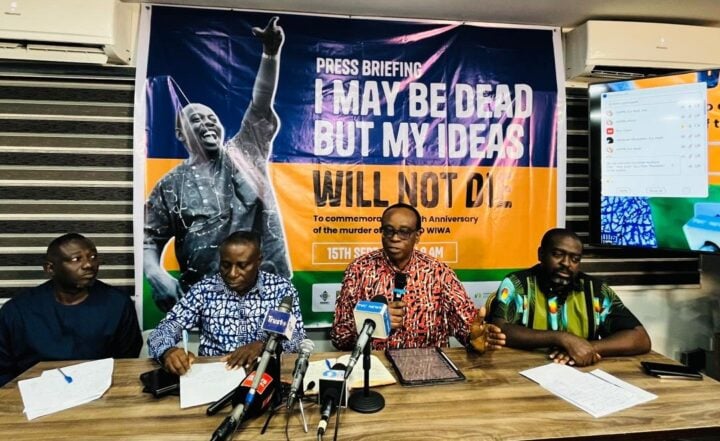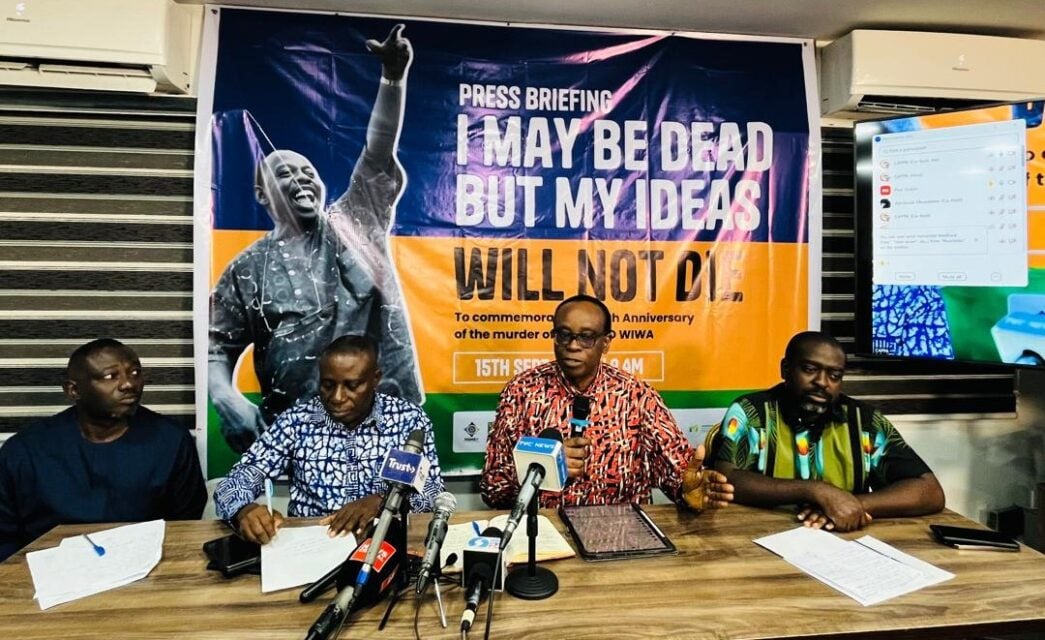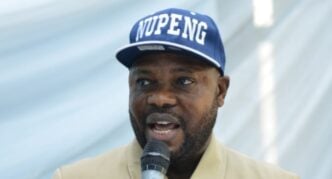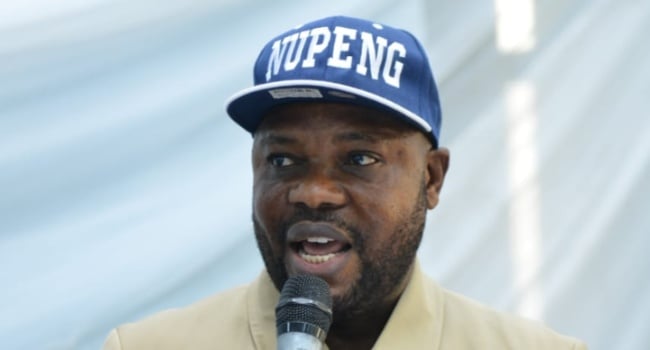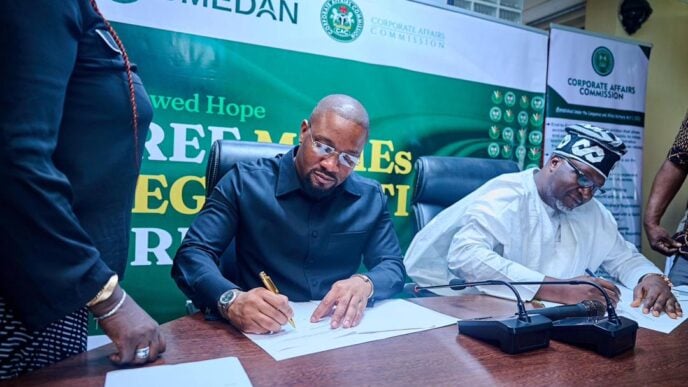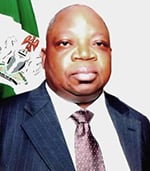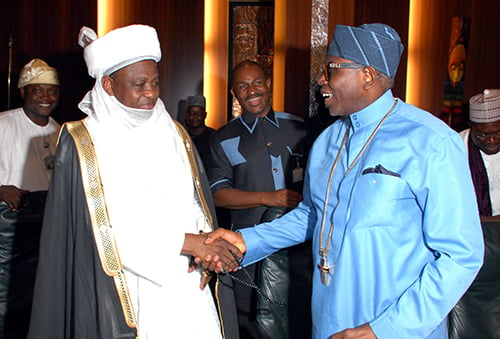Environmental activists have implored the federal government to halt all attempts to resume oil extraction in Ogoniland.
At a press conference in Lagos on Monday, civil society groups under the banner of the Ken Saro-Wiwa 30th anniversary planning committee described current moves to reopen oil wells in the Niger Delta as a “grievous assault” on the people.
Nnimmo Bassey, director of Health of Mother Earth Foundation (HOMEF), said the continuing devastation of Ogoniland remains a painful reminder of the “judicial murder” of Ken Saro-Wiwa and the Ogoni Nine.
Bassey added that divestment plans by oil majors without community consent amount to a “mockery of justice”.
Advertisement
He called for the exoneration of Saro-Wiwa and the eight other Ogoni leaders executed in 1995.
“We demand the immediate demilitarisation of the Niger Delta and a halt to all attempts to resume oil operations in Ogoniland,” Bassey said.
“We are not unaware of the quiet negotiations and ongoing talks aimed at reopening extractive activities in our communities. We reject these schemes in their entirety.”
Advertisement
Celestine Akpobari, director of the Miideekor Environmental Development Initiative, called for a thorough and transparent clean-up of Ogoniland and the wider Niger Delta.
He warned against “cosmetic reports that gather dust”, noting that remediation must include scientific and independently monitored actions to restore rivers, farmlands, and livelihoods.
Akinbode Oluwafemi, executive director of Corporate Accountability and Public Participation Africa (CAPPA), demanded accountability from multinational oil companies.
Oluwafemi said corporations that contributed to decades of environmental destruction must not be allowed to walk away from their liabilities.
Advertisement
He added that the government must prioritise justice for frontline communities who continue to live with polluted water, poisoned soil, and toxic air.
“True accountability means cleaning up their mess, restoring what was lost, and submitting to legal, financial, and moral responsibility,” he said.
Prince Edegbuo of Social Action warned against the criminalisation of environmental struggles, urging the state to guarantee freedom of expression and protect activists rather than persecute them.
“To criminalise activists is to criminalise justice itself,” he said.
Advertisement
The coalition insisted that oil must remain in the ground in Ogoniland, arguing that reopening oil wells would deepen the scars of pollution and dishonour the memories of Saro-Wiwa and others who died in the struggle.
BACKGROUND
Advertisement
On November 10, 1995, Saro-Wiwa, a writer, environmentalist, and leader of the Movement for the Survival of the Ogoni People (MOSOP), was executed by the late Sani Abacha-led military regime.
Saro-Wiwa had led a non-violent campaign against oil pollution in Ogoniland, drawing global attention to the environmental destruction and economic marginalisation of his people.
Advertisement
Two years earlier, in 1993, sustained community resistance forced Shell to suspend oil production in Ogoniland.
Saro-Wiwa was killed alongside eight other Ogoni activists—later known as the Ogoni Nine—after a military tribunal convicted them on what rights groups described as “trumped-up charges”.
Advertisement
Their execution, widely condemned as a “judicial murder”, sparked international outrage.
Saro-Wiwa’s calls for ethnic autonomy, resource control, and sustainable development continue to resonate today as the Niger Delta still battles oil spills, gas flaring, and widespread poverty.
The anniversary event was organised by HOMEF, CAPPA, Environmental Rights Action/Friends of the Earth Nigeria (ERA/FoEN), and Kebetkache Women Development & Resource Centre.
Others were OilWatch International, Social Action, Miideekor Environmental Development Initiative, We The People, Lekeh Development Foundation, and Human and Environmental Development Agenda (HEDA Resource Centre).
